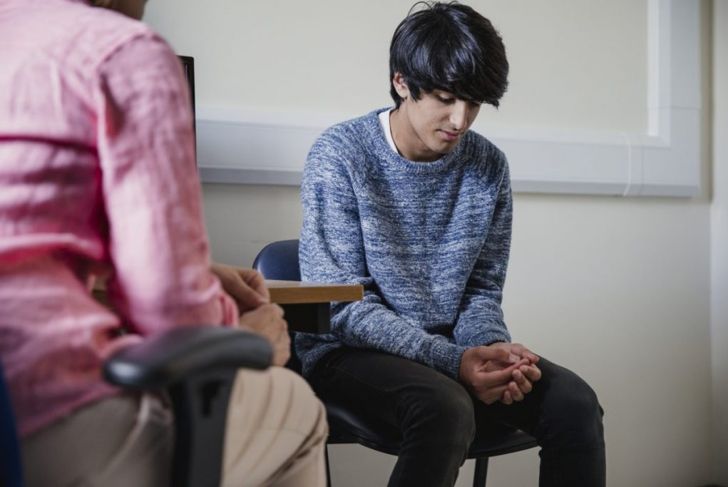Some people think addiction is a choice, but it is a chronic disease and, like any disease, alcoholism requires consistent dedicated care. The condition can affect a person for their entire life, even after treatment, but treatment can still vastly improve the quality of life for a person with an addiction. Ultimately, everyone is different and requires a care option that suits their needs. Typically, treatment options depend on factors such as the type of addiction, length and severity of use, and mental and physical wellness.
First Steps
One of the first steps when considering treatment for addiction is acknowledging that the condition has a negative effect on one’s life. Addiction can dramatically affect work or school performance or result in a noticeable change in mindset. Beyond that, the person seeking treatment must be willing to work hard to defeat their addiction. There will be highs and lows on the road to recovery, and the only way to truly beat addiction is to face the disease head-on.
Detoxification
Typically, most forms of addiction treatment begin with detoxification. For many people, this is one of the hardest steps. It involves clearing the addictive substance from the body while treating the withdrawal reactions. Every addiction has different withdrawal symptoms. There may be mental, emotional, or physical effects. According to the Substance Abuse and Mental Health Services Administration, treatment clinics will use medications to limit withdrawal symptoms in around 80 percent of cases.
Cognitive Behavioral Therapy
One of the most common forms of talk or psychotherapy is cognitive behavioral therapy or CBT. A mental health professional works directly with their patient in a structured, organized way. The main goal of CBT is to ensure the patient is aware of the way they think, allowing them to view challenging situations with clarity and insight. For people with addiction, the goal may be to help the client recognize and change the way they view the source of their addiction or the addiction itself. Sessions may be frequent during the early stages of treatment and slowly decrease as symptoms improve.
Multidimensional Family Therapy
Facing addiction alone can be a harrowing experience full of anxiety and fear, especially for adolescents, teens, and young adults. Multidimensional family therapy is a treatment method that aims to involve family members in the treatment process for younger individuals. The therapy recognizes that addiction issues are multidimensional and complex. Counselors build relationships with the patient and the patient’s family or caregivers. As they do this, they also teach the family how to help outside of treatment. This builds an entire support structure on which the person with addiction can rely.
Motivational Interviewing
Some feelings, thoughts, and insecurities can negatively impact their treatment. In many cases, people with addiction struggle to find the motivation to fight. Motivational interviewing is a practical and short-term treatment process that recognizes how difficult it is to make life-altering changes. A motivational interviewer encourages their client to discuss the need for change and teaches them what to expect during their treatment process. The primary principle of motivational interviewing is to ensure the interviewer is completely supportive of their patient. Motivational interviewing may lead to other treatment options.
Self-Help Groups
It can be difficult to seek treatment for addiction without access to people who understand the struggles themselves. Self-help groups provide a safe environment for people to speak about their addiction with others undergoing similar experiences. Some people believe their condition isn’t severe enough for group therapy, but everyone can find some benefit. Self-help groups can prevent people from feeling isolated or alone and provide them with an environment where they can speak freely without judgment or fear. If a person is too uncomfortable with in-person groups, there are online options as well.
Recovery Programs
Since the 1930s, Alcoholics Anonymous has helped alcoholics and heavy drinkers fight their addictions and improve their lives. The 12-step program sets principles that a person seeking treatment for their addictions can follow. Many rehabilitation and treatment centers have adopted the 12 principles as core elements. However, the 12-step program isn’t for everyone. Other options include the BRENDA approach or SMART recovery, and some people find these treatments more effective.
Therapeutic Community
In some cases, addiction is so severe that it requires months of dedicated treatment. Therapeutic communities are specialized treatment centers that provide long-term care for those who need it. A person lives in the center for several months, while on-site staff assists them and guides their treatments. The supportive community offers opportunities for group therapies and socialization. The clients and staff are essential factors that contribute to recovery.
Recovery Housing
If a person desires or needs a support network for short-term treatment, recovery housing is a viable option. A treatment center directly supervises the patient and assists them in engaging with new responsibilities, so they can slowly adapt to a new, independent life. Some centers offer advice or courses to help clients learn how to handle finances and find employment. Most housing options have connections with community support services to offer continuing support once the client finishes treatment.
Medications
Physicians prescribe medication for treating addiction for various reasons. Primarily, withdrawal symptoms can become so severe that patients fail to continue with treatment. Depression, anxiety, and dysphoria are often what prompt people to first begin addressing their addiction. During the recovery process, these conditions can reemerge or, for some individuals, manifest for the first time. Medications may combat these symptoms, enabling the patient to fully focus on their recovery.

 Home
Home Health
Health Diet & Nutrition
Diet & Nutrition Living Well
Living Well More
More




















